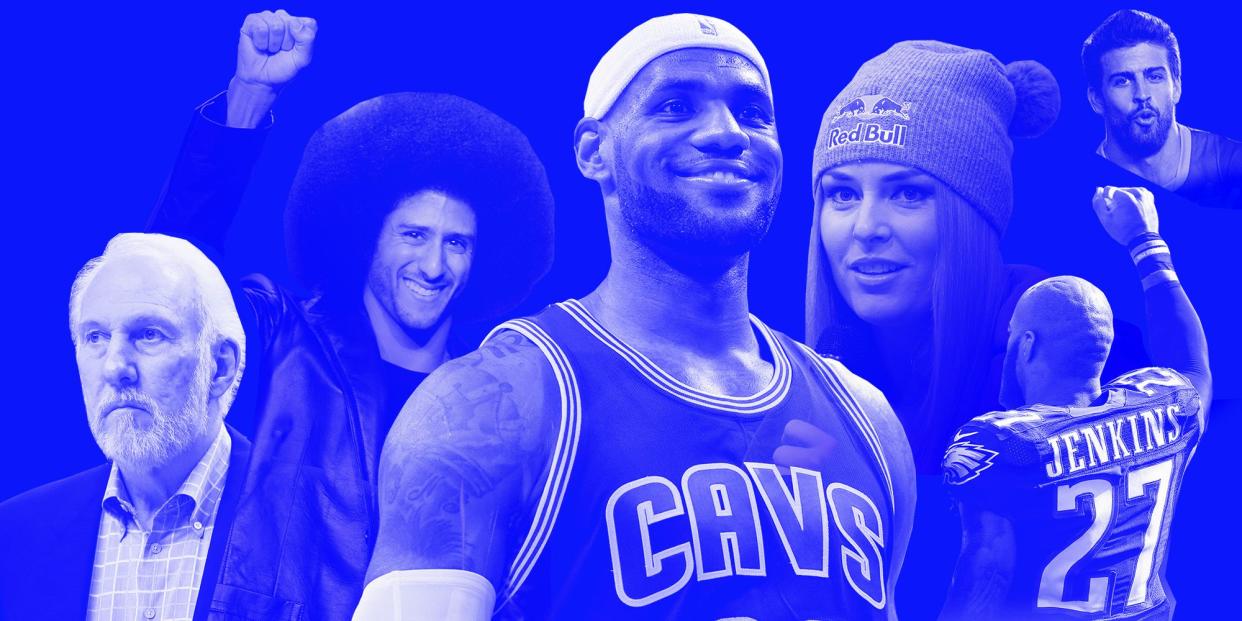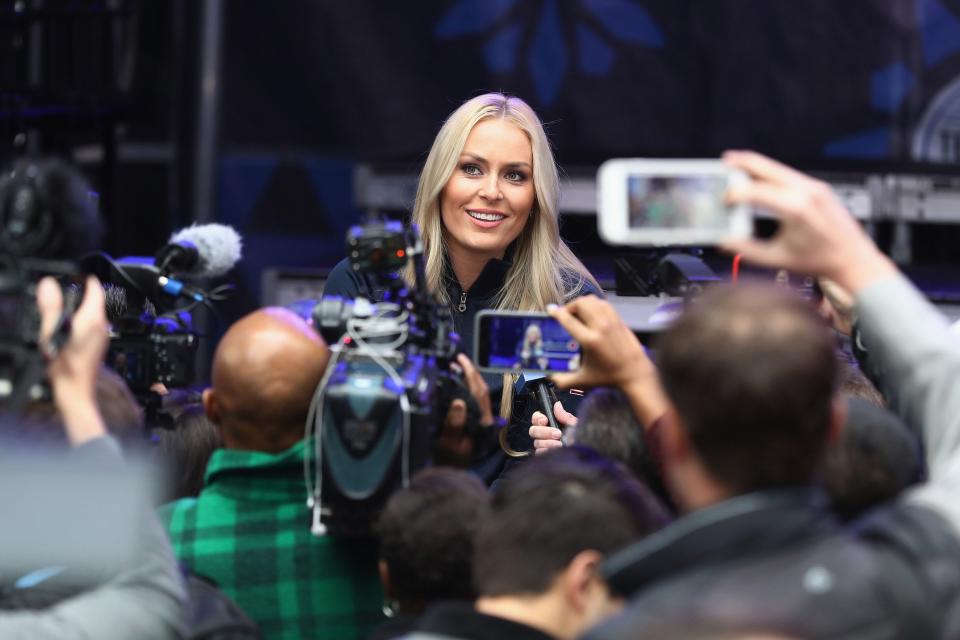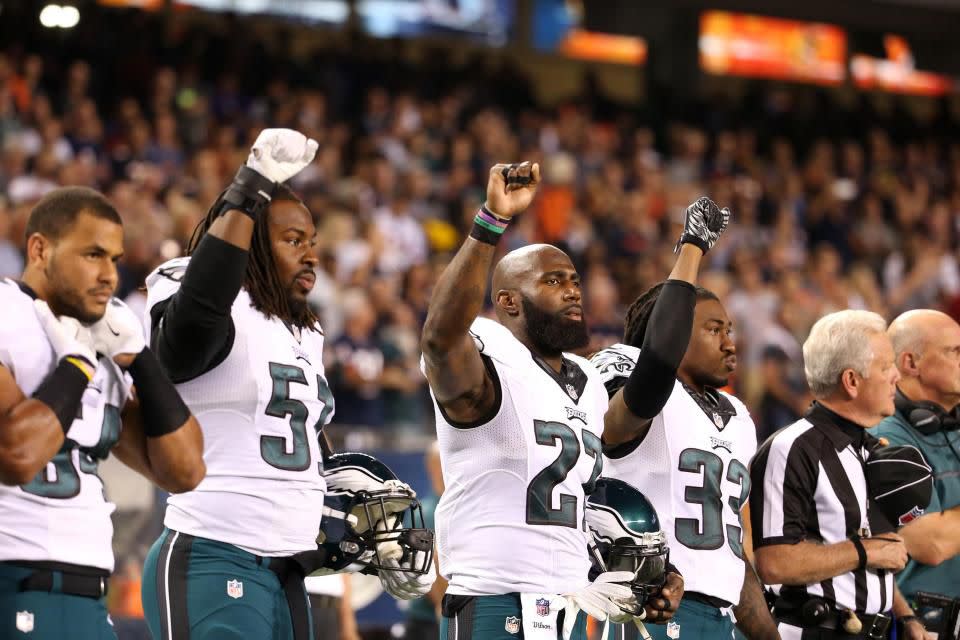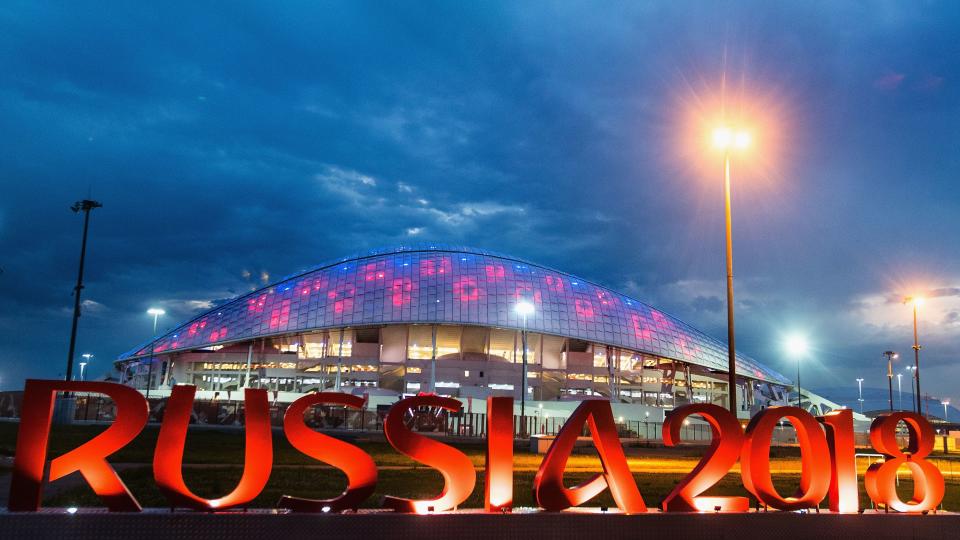2017 Was the Year of the Athlete’s Voice

Perhaps a collective desire to get the hell out of 2017 has made us glaze over what we’ve witnessed this year - an explosion in athlete activism - and what’s changed in the domestic and international sporting-verse. This year, sports have lost anything resembling an escape from reality for many of its fans (if it ever really was) and ratcheted up its ties with the battleground of national headlines. And it wasn’t all prodded by the President’s spats with professional athletes.
This was the year when “Stick to Sports!” was made a joke and gave way to “Speak Up!” as the athlete’s mantra, when the athlete's voice compounded across leagues and got political - very political - once again.
With the Olympic Winter Games less than two months away, it was noteworthy (but not surprising) when Lindsey Vonn, a veteran and centerpiece in the run-up to the Pyeongchang, told CNN she’d be representing the U.S. at the Olympics - not the president.

“My travels around the world have recently made clear that this is no longer how people view the United States,” Vonn said. “You cannot pick up a newspaper or turn on the TV in Europe without noticing how people are questioning our direction.”
Vonn was adamant in her decision to decline any potential White House invitation, echoing the punchline of many a sports profile from 2017. The gatekeepers that would typically preclude athletes from speaking up, especially among winter Olympians with a brief windows of exposure in niche sports, are nowhere to be seen.
Vonn's straightforward language - which many sponsors may have seen as incendiary - could have cost her sponsorship dollars in years past. But not after this year. The Take a Knee movement permeated every NFL team after the president lit the fuse; an entire WNBA team, many of whom have been far ahead on multiple issues than other athletes, stayed in the locker room before a finals game; one of the most respected head coaches in the NBA spoke for over 20 minutes on the intersection of sports and politics; and Colin Kaepernick received Sport Illustrated’s Muhammad Ali award and his jersey locked in a spot as a top-seller in the league.

It’s a new reality for sports, and it’s not without precedent. But what differentiates this moment from drawing clear throughlines to the 1960s or 1980s and the efforts of Muhammed Ali, Tommie Smith and John Carlos, Billie Jean King, Jim Brown, Kareem Abdul-Jabbar, or Curt Flood is the global amplification spurred by social media and sheer accumulation.
It has been a year in which a collective of sports superstars set the standard for rhetoric laced with strong personal views; see, for example, Lebron James’s “U Bum” tweet after Trump withdrew a White House invitation to Steph Curry. Coaches - most notably among them Steve Kerr of the Warriors, Gregg Popovich of the Spurs, and Stan Van Gundy of the Pistons - also set a high bar for eloquent proficiency in the political space, guiding players on how to reckon with the headlines buzzing on smartphones during games with but a few brushstrokes.
Of course, it’s still not a risk-free bargain. Kaepernick is out of a job. He paradoxically remains the symbol, not the spokesman, in the fight for social justice. (If football is looking for a spokesman working for the betterment of African-American communities and maintaining his positioning at the NFL bargaining table, they should look to Malcolm Jenkins of the Philadelphia Eagles, who some might remember raised his gloved fist in a nod to Smith and Carlos during the anthem.)

This year, though, massive reach and historic outcomes weren't exclusive to basketball and football. Women’s soccer and hockey took stands on equal pay and working conditions and reaped financial rewards after more than a year of wage discrimination complaints with the Equal Employment Opportunity Commission and a boycott against the sporting federation to increase wages and support, respectively.
The athlete’s voice spanned beyond American borders, too, in what's been a year of unprecedented global tensions. Over a dozen athletes and coaches from Spain’s Catalonia region weighed in on the push for independence as the Spanish government deemed the move unconstitutional - most prominently longtime FC Barcelona defender Gerard Piqué, who expressed his support for the region’s right to bring the referendum to a vote. Down under, football players and the national rugby union pushed for the 'Yes' vote in the survey that eventually legalized same-sex marriage in Australia. While our sports media diet may preclude international athletes, it shouldn’t. If we’re to look ahead to 2018, they’re crucial to understanding what might be to come.

What we’re left with is a laundry list of possibilities in 2018. Trump’s one year in office will come just days before the world turns its attention to the Winter Olympics. And as we learned in 2017, any event featuring national anthems is inherently politicized. The American athletic presence on the Korean peninsula, and Russia's (ostensible) absence from the games, will make for an event rife with headline-driven questions and opportunities for athletes to engage. The question remains whether an athlete will raise a fist or take a knee on an Olympic podium in 2018, something they'd only be able to do if they'd already won.
In the U.S., The Super Bowl will test the NFL’s resolve and a divided fanbase after a season of unsavory headlines from the president and team owners.
Then the World Cup will follow close behind, and human rights violations, corruption, and ties to the 2016 Election will surely permeate the pre-coverage out of Russia. Take a moment and imagine if the megastars of soccer - the stars that dwarf Lebron in terms of global clout - will find a voice ahead of the World Cup. It’s unlikely we’ll hear from them, especially if you consider Russian laws restricting freedom of expression and existing restrictions from clubs on speaking out.

The floodgates are open for 2018. There's a chance the momentum will dissipate like it did with athletes of the 1980s, but I don't think it will. The expanse of athlete activism across platforms is too great now, and generations of young athletes are better trained than their future employers in disseminating a message, and they have a slew of highly-coordinated mentors across sports and countries to look to. It will all continue to make many issues that formerly seemed distant feel even more familiar and deeply personal. The relationships between athletes and the public at large, particularly in football, may become more strained before they get better, especially as sophistry like centering a debate around the national anthem and military will inevitably restrict conversations from moving forward.
Sports is a mass phenomenon, one in which politics will always - and unavoidably - be integrated. And progress is complex. It depends on who’s keeping score. But more than anything, there’s this sense of a broader humanity in athletes playing out right now. It’s beautiful to see.
You Might Also Like

